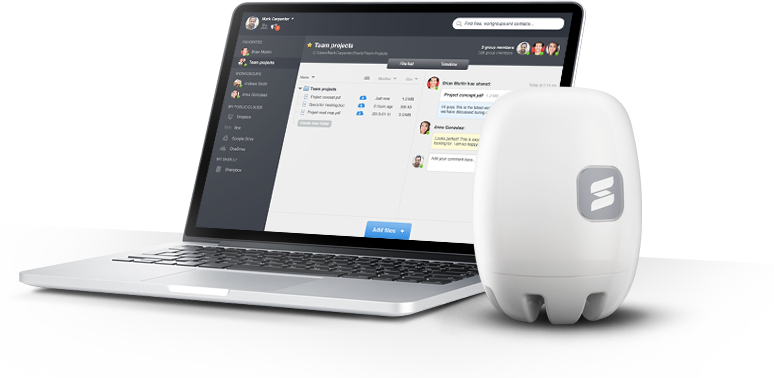Sher.ly: The Home Server Dream Turned Into a Private Cloud
A few months before Steve Jobs took to the Macworld stage unveil the iPhone—the device that’d take the PC’s former role as the computing device at the center of our lives—Bill Gates took to the CES stage to announce Microsoft’s device for the future of computing: the Home Server.
It wasn’t such a terrible idea, and if anything, was the first time Microsoft was hinting that, in the future, something other than the PC would be the center of your computing life. Data was now more important than the apps you used to manipulate said data, and with everything from your pictures to your purchased movies, music, and books being digital, you needed a lot of storage space to keep up with it all. Your laptop—even Microsoft saw that the future was mobile, even if they didn’t see that it’d be powered by tiny devices—didn’t have space to keep it all.
Thus the Home Server. Make a consumer-grade desktop PC without a screen, let it automatically backup all the PCs on the network and let you remotely access files, sell it for around $500, and Microsoft’s dream of “a PC in every home” could suddenly become “a server in ever home.” Said dream came complete with a children’s book to ostensibly sell the idea to parents who’d balk at the idea of dropping half-a-grand on a box that, for all intents and purposes, would appear to do nothing to the average user.
Meanwhile, we the people outsourced our backups to Backblaze and our file sharing to Dropbox, and iTunes and Amazon were just as happy to let us keep our digital purchases in the clouds to redownload on a whim. PCs were complicated enough to manage, and they sure weren’t fun—and a server was only more complexity that would only be welcomed by geeks. Smartphones quickly became the center of everyone’s digital lives, with our data stored in the imperceptible cloud, and Microsoft’s been trying to remind us ever since that we really, surely still need their software in our lives. Remind me who needed those massive storage banks at home?
And yet, the actual idea of the Home Server wasn’t such a bad idea. It wasn’t game changing on the scale of the iPhone, but the fact still is that backing up and sharing digital files is a pain. Upload speeds are still slow, most of the time, and who really wants to pay $100 a year for a 100Gb hard drive in the cloud when you could buy a 1Tb hard drive for less? But then, you’ll still want your files on the go (and at home) from your smartphone and tablet, and most people don’t really want to fiddle with a server (or otherwise they’d have already repurposed an old desktop into a Linux server).
That’s an overly lengthy intro to set the stage, but essentially it all boils down to the fact that backup and file sharing are still hard, and we need something simpler. Some way to share your files from a device you own solves the uploading speed problem, and if it could be as simple to use as Dropbox or Droplr, it’d surely be a winner.
That’s why I’m intrigued by the Sher.ly project. It’s an app that lets you share files from your own computer, NAS, existing online storage accounts, or the Sherly box—a Raspberry Pi-powered mini home server of sorts that can even run other Linux apps if you so wanted. It’s a self-hosted way to backup and store and share all the files you want, in an app that, at least at first glance, looks nice enough that you’d want to use it. And, yes, it’s got mobile apps, so it’s solving the file problem for the devices you’d really use, not just traditional computers—and here’s to hoping that, come iOS 8 release day, its iOS apps will integrate as a storage provider so you could easily use it to store files in any app.

Sherly’s a Kickstarter project by people with a proven track record, and it’s already passed its minimum goal with over twenty days to come. It should be coming, for real.
It could be another letdown in the attempt to make hosting your own files make sense, but I happen to think this one’s going to do better than the others because it’s simple. Dropbox made sense to everyone because it’s just a folder that automatically syncs and shares what’s in it—none of the complexity of other file sharing tools. iCloud has people backing up their iOS devices because it just automatically does it in the background. Sherly, while still being perhaps more aimed at the “Maker” crowd that’d be interested in making their own Raspberry Pi powered devices, looks simpler than any other personal server type system I’ve ever seen. It’s just about making it easy to privately share files—large files at that—with the devices you already use, without having to pay per-gigabyte in the cloud. And if you get their oh-so-cute Sherly box to store your files, it, too, promises to be so simple it only requires 3 taps to setup, and then will work as easily as any other cloud storage app.
Simple stuff is almost always better. I can’t wait to take the Sherly app for a spin.
Thoughts? @reply me on Twitter.
